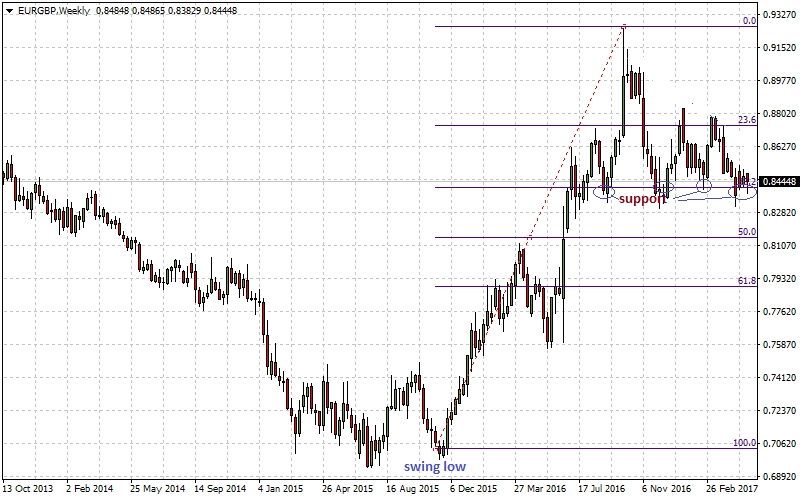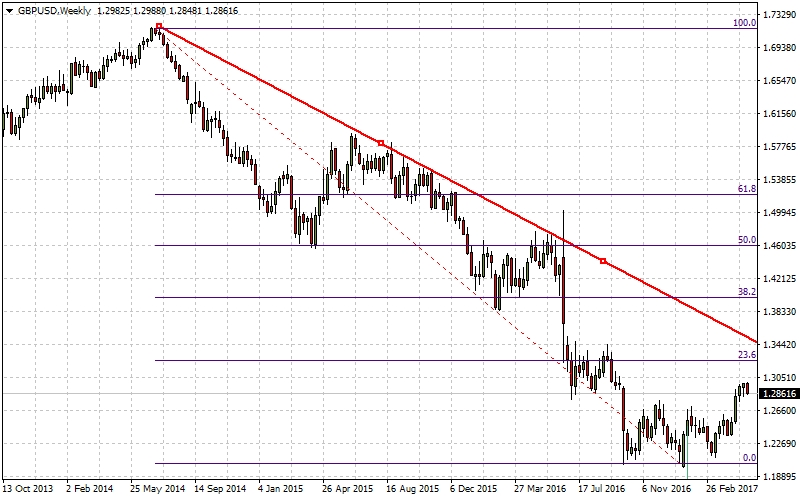Europe and the United Kingdom have gone through with two of the biggest landmark events to shape their history. First, it was the United Kingdom voting to leave the EU in a landmark “Brexit” vote in June 2016, and then it was the election of the centrist, pro-EU French politician, Emmanuel Macron as the new President of France in May 2017. It promises to be a very interesting time as both regions will find themselves constantly in the news for the next two years as the two-year Brexit process negotiations get underway. This will no doubt keep market watchers, investors and financial market traders very busy indeed.
The Brexit process is poised to affect several spheres of the UK economy. Education, trade, housing, immigration, the hospitality industry and financial markets will all experience some degree of affectation. While the British Pound has had its fair share of Brexit blues, the UK housing market is also coming under intense scrutiny. It is just coming out of the worst period of decline seen in the aftermath of the global financial crisis of 2009. Analysts have been generally divided as to how the UK housing market will be affected by the Brexit process. Some analysts are predicting a slump while others actually expect the housing market to do well, at least in 2017. It depends on who you speak to, and this underscores the fact that nobody really knows how the housing market will react to Brexit because this is simply uncharted territory.
So how is all this going to affect you the citizen, the investor, real estate businessman, home owner and financial trader on both sides of the divide?
Brexit and Macron’s Victory as they Affect the Euro and the British Pound
The immediate aftermath of the Brexit vote saw the British Pound take a massive hit against the US Dollar and other major currencies, falling at some point to 30-year lows against the US Dollar. However, a number of events have led to a gradual recovery since then. First was the emergence of Theresa May as UK Prime Minister, who then called for an early election slated for 8 June 2017. This move worked like a soothing balm on the British Pound as it soared to a 6-month high on the week of the announcement, enabling the Cable to recover some of the post-Brexit losses. But this may not last very long, because after the elections will come the difficult two-year process of negotiating what is looking like a very expensive divorce from two former lovebirds.
On the opposing side, we have the Euro, which has just been buoyed slightly by Emmanuel Macron’s victory. Macron’s opponent, Marie Le Pen, had promised during her campaign to toughen immigration and drag France out of the EU, a move which would have spelt disaster for the single currency. So while the victory of Macron has not had such a bullish impact on the single currency, it has had a stabilizing effect. However, the French election is just one of the various elections that will hold across Europe. Germany and Italy are lining up for possible elections in the Autumn of 2017. These elections, along with the concluded France vote, will paint a clearer picture of who the UK will be negotiating its exit process with, and this will have an impact on the final outcome of the negotiations.
Therefore, in addition to the events that occur with regards to the UK election and the Brexit negotiations, there is still a lot that is going to happen in the EU political scene.
What is Being Negotiated?
The following issues will be discussed during the negotiation process.
1. Free trade agreements: The EU is the UK’s largest trading partner. It is therefore in the interest of the UK to keep the trade status as it is, and this means having to negotiate some sort of free trade agreement. This constitutes one of the key discussion areas.
2. The status of Scotland in the wake of calls for a 2nd Scottish independence referendum. Scotland had voted overwhelmingly to stay in the EU, but many politicians in Scotland have expressed their unhappiness at being forced to leave the EU “against their will”. In March 2017, the Scottish First Minister Nicola Sturgeon made an official request to the UK government to invoke Section 30, which would trigger a 2ndScottish independence referendum. The UK government is opposed to this.
3, State of the Irish border post-Brexit.
4. Immigration issues.
So What Happens to the Cable and the UK Housing Market?
Most of the market movements on the British Pound will come largely from two factors:
1. In the short term, the June 8 election results.
2. The pronouncements and eventual outcome of the Brexit negotiation process.
The two currency pairs under focus going forward will be the EUR/GBP and the GBP/USD. The Pound is definitely not going to have an easy ride when the Brexit negotiations commence.
In the short term, we look to the June 2017 UK elections to see what happens. A win for the Tory party will likely see some short term boost for the Pound. How long this will last will depend on the proceedings of the Brexit process, which will have a longer term impact. Comments of the key players in the entire exit negotiations need to be watched and gauged carefully.
The EUR/GBP is going to be the currency to watch. So far, a look at the weekly chart for the EUR/GBP shows that price action has been bouncing around the 23.6% and 38.2% Fibonacci retracement levels, traced from the swing low of November 2015 to the swing high of October 2016.
The 38.2% Fibo retracement support level has been tested four times between June 2016 and May 2017. If Marie Le Pen had won the French election, it is possible that there could have been a downside break of this support area. As it is, Macron won and so it has to take some monumental shift that will produce Euro weakness and Pound strength to break this support. Price action at the time of writing this piece is currently at the 38.2% level support area. The next fundamental push should come from the outcome of the UK elections. Presently, the long-term trend favours a long push from current support levels. There is likely to be a lot of market noise in between.
The weekly chart of the GBP/USD shows that the currency pair has been on a long-term downtrend, but is in the midst of an upside retracement. Once again, the UK elections and the Brexit negotiations will determine how far this upside retracement will go. There is definitely going to be a lot of market noise in-between.
Those who trade the GBP/USD will have to contend with US fundamentals as well. There is talk of an interest rate hike later in the year as the jobs market continues its steady recovery, and then there are the uncertainties of the economic and foreign policy direction of the Trump administration.
As for the UK housing market, there are a few pointers to how this market will perform the rest of the year. Here are findings of surveys done by Rightmove to evaluate home prices:
- Asking prices for homes in London have barely moved from their April 2016 levels.
- Prices in the posh areas of London such as Islington and Kensington are actually dropping, whereas the home prices in the suburbs are rising due to greater demand for affordable housing.
- The Knight Frank/IHS Markit House Price Sentiment Index, in an April 2017 survey, found that 43% of homeowners in the UK expected the prices of their homes to climb, while 48% expect them to remain static.
When it comes to office space rental market trends for 2017, it is expected that 2017 will be a good year for tenants and investors alike. This impression is buoyed by the following fundamentals:
- The occupier profiles for office rentals will change, as overseas investors and tech entrepreneurs and investors in the creative sectors (especially from the Eurozone and China) seek to take advantage of the expectation of a cheaper Pound to setup shop in London. Google (NASDAQ:GOOGL) has already taken a step in this regard by announcing an expansion of their London office workforce.
- New business rates will drive relocations around the cities office spaces.
- Offices in city of London are already seeing low office vacancy rates of 3.6 - 6%.
- Increase in rental values in the Southbank area by as much as 12%.
So while the sentiment is basically flat for home prices, the sentiment for office rentals is bullish. Refer to a report on London office rental market in 2017 for more information on the subject.
However, these sentiments will be tested once negotiations begin and we get some clarity on the positions of the EU and UK negotiators. Negotiations kick off late May 2017 and will carry on aggressively for the next one year. So watch out for the trading opportunities in the assets mentioned.


